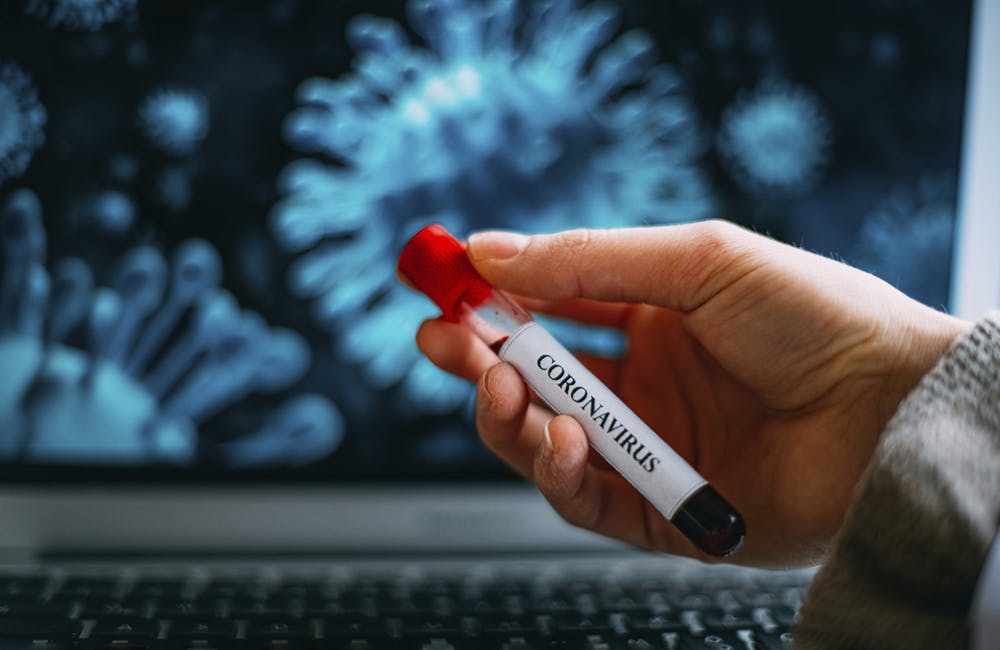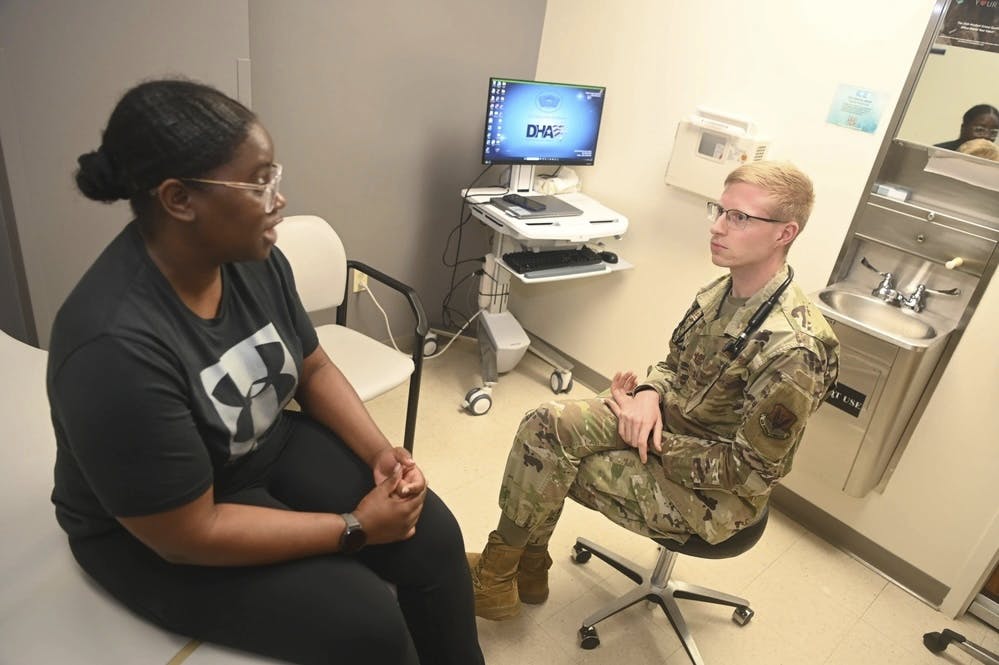HHS Backs Development of Rapid COVID-19 Diagnostic Testing System
The agency backs a system that will provide test results within three hours, while seeking other solutions.

The Department of Health and Human Services has chosen its first COVID-19 coronavirus diagnostic testing solution to support development as the agency ramps up testing, detection and prevention efforts to combat the virus.
HHS’s Office of Assistant Secretary for Preparedness and Response announced its Biomedical Advanced Research and Development Authority will support a molecular diagnostic test from Hologic, which is developing a diagnostic system for COVID-19 that can process up to 1,000 tests in 24 hours.
BARDA will provide $699,000 to the chosen company to accelerate the diagnostic testing solution, which will detect the genetic material of SARS-CoV-2, the virus that causes COVID-19, HHS said. The solution, once complete, aims to make patients’ diagnostic test results available to clinicians in less than three hours.
“Early, rapid diagnosis is essential for clinicians and their patients to treat infections appropriately and take immediate action to help mitigate the spread of COVID-19,” BARDA Director Dr. Rick Bright said in a press release. “While the Centers for Disease Control and Prevention and our nation’s public health laboratories are making valiant efforts in testing and surveillance of coronavirus infections, these labs could become overwhelmed as the number of suspected cases grows. Rapid, high-throughput tests are critical to provide quick results for more Americans and to aid the nationwide public health response.”
Although the pilot system is in development, it uses a preexisting system used widely across U.S. laboratories that leverages “sample-to-result automation” and offers “a broad menu of FDA-cleared tests to detect common respiratory infections,” HHS reported. Updating these systems already in the supply chain to detect COVID-19, therefore, would allow for a rapid scale-up of testing.
BARDA anticipates that the final system will be completed “in a manner of weeks,” after which the Food and Drug Administration will consider granting an emergency-use authorization — which enables the availability and use of needed medical products during public health emergencies — for diagnostic testing.
Although HHS has chosen its first technological solution to support for rapid testing of COVID-19, it is still seeking more solutions that are faster, accurate and portable. In a March 9 solicitation, BARDA said it is still seeking handheld diagnostic testing devices that are easy to use at the point of care. BARDA also wants faster devices than Hologics’, adding in the document that it wants new devices to “provide results in less than 30 minutes (less than 15 minutes preferred).”
“Offerors should describe development status of the platform, the proposed COVID-19 specific biomarkers, development status of the assay, access to patient samples, clinical studies, regulatory pathway and report of discussion with FDA regarding EUA data requirements,” the solicitation adds. “At a minimum, include proof of concept data on the proposed platform to demonstrate ability to discriminate etiology of other respiratory infections (e.g., can differentiate influenza infection from other respiratory virus infections) is required. BARDA will also prioritize manufacturing in the United States.”
Diagnostic testing devices are one of seven areas in which BARDA is looking to take COVID-19 medical countermeasures. The agency said it is also seeking solutions for vaccines and therapeutics for novel COVID-19 coronavirus, immunomodulators or therapeutics targeting lung repair, pre-exposure and post-exposure prophylaxis, respiratory protective devices and ventilators.
In the meantime, HHS said it is working with civilian agencies at the Defense Department to review public- and private-sector solutions to leverage in these countermeasure areas, and ASPR and the National Institutes of Health have started supporting development and treatment options for COVID-19. HHS also announced last week that it will purchase 500 million N95 respirators over the next 18 months.
To rapidly address COVID-19 and reduce its spread, HHS emphasized that it and other agencies are particularly interested in products, technologies and solutions that have progressed beyond non-clinical studies, have used a platform to manufacture products already approved by the FDA and have domestic large-scale commercial good manufacturing practices.
This is a carousel with manually rotating slides. Use Next and Previous buttons to navigate or jump to a slide with the slide dots
-

Trump Executive Order Boosts HBCUs Role in Building Federal Tech Workforce
The executive order empowers HBCUs to develop tech talent pipelines and expand access to federal workforce opportunities.
3m read -

IHS Prepares to Deploy PATH EHR at Pilot Sites in 2026
IHS targets PATH EHR pilot in 2026, emphasizing governance, collaboration and interoperability as key pillars of the modernization strategy.
4m read -

FEHRM CTO Targets Two-Year Cloud Migration for Federal EHR
Lance Scott touts new EHR tech advancements, including cloud migration, expanded data exchange and AI integration to improve care delivery.
4m read -

Trump Taps Maj. Gen. John Bartrum to Lead VHA
Nominated for VA's top health role, Bartrum brings over four decades of military and public service to the agency.
3m read -

AI Growing in Focus Amid HHS Restructure
Department of Health and Human Services officials see promise in artificial intelligence amid efficiency goals.
4m read -

Federal EHR Leaders Eye Ambient Dictation, Interoperability
Officials from DOD and VA said they are exploring new EHR features such as functionality in offline status and interoperability.
5m read -

Federal Agencies Tout Tech in President Trump’s First 100 Days
Defense modernization and health care restructuring landed among some of the key IT highlights within the president's first few months.
6m read -

VA Secretary Tells Congress Tech Efficiencies Will Help Offset Workforce Reductions
Technology improvements will help allow department to maintain veteran care, VA leadership tells Senate Veterans Affairs Committee.
-

NCI Uses Wearables Data to Link Exercise to Cancer Risk
NCI finds a connection between low-intensity exercise and decreased risk of cancer through data collected from wearable technology.
9m listen -

NCI's Tech-Based Therapy Helps Patients Battle HPV-Linked Respiratory Disease
A new tech-based therapy is helping NCI treat patients who suffer from a respiratory illness associated with HPV.
23m listen -

CDC's Strategic Vision for Faster, Smarter Public Health Response
Dr. Jennifer Layden, a key architect of the CDC's Public Health Data Strategy, shares how modern technology is transforming disease detection and response.
9m listen -

Rising Threats Push Agencies to Revamp Cyber Defenses
NIST and DHMS officials boost data security with the evolution of CSF 2.0 and push toward attribute-based access control amid the rise of AI.
3m read
















